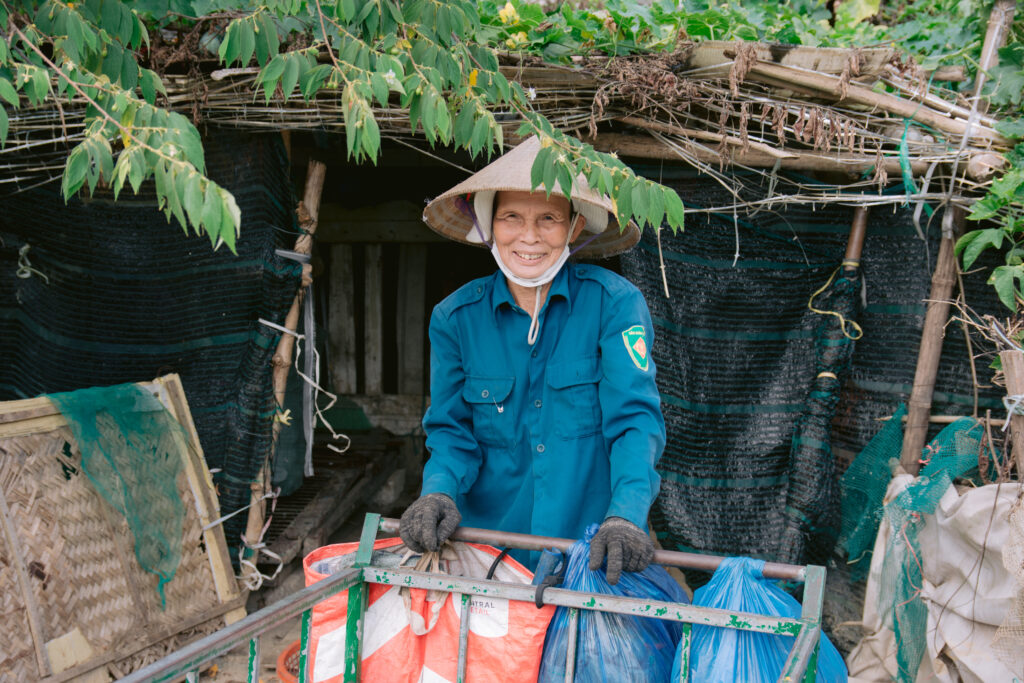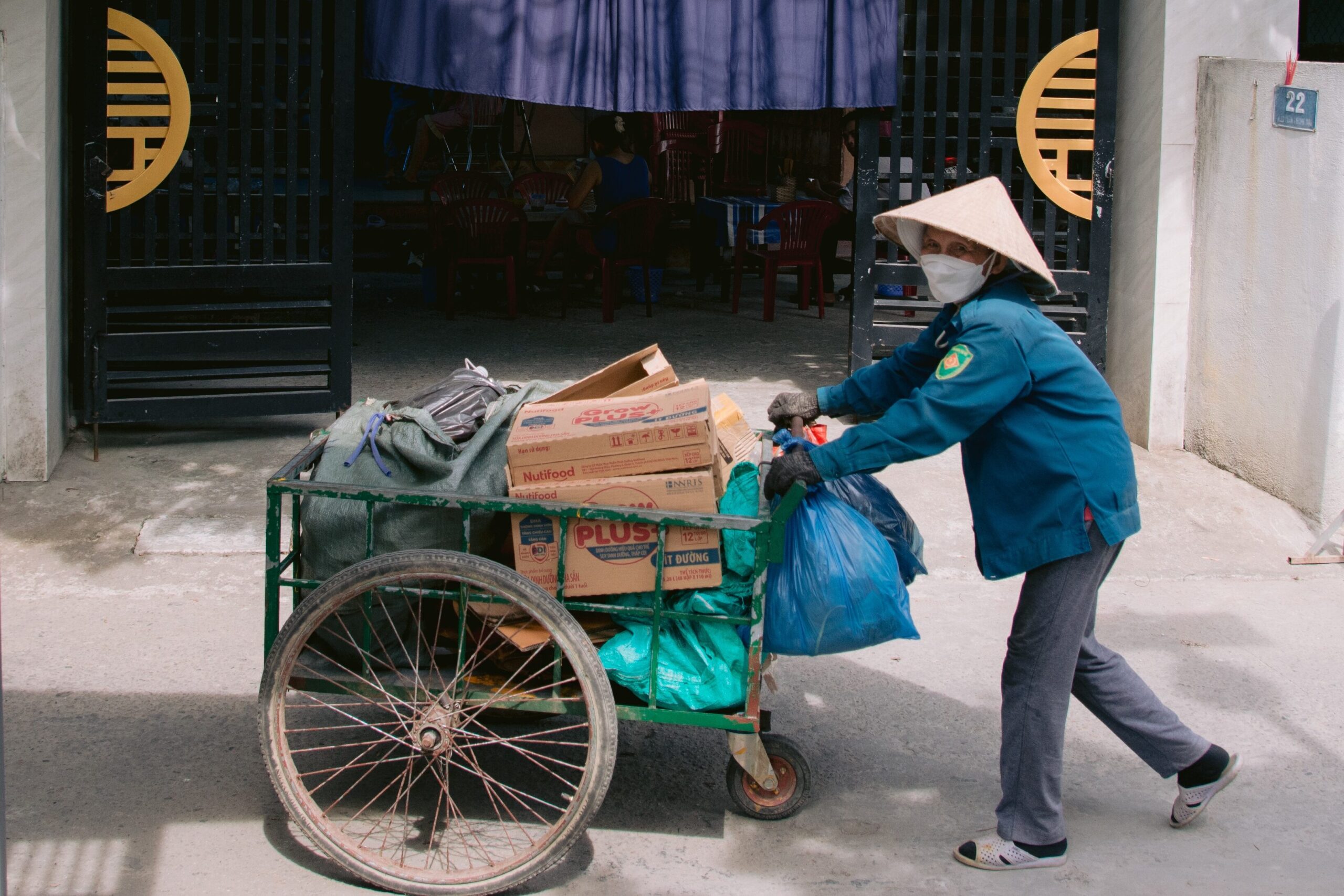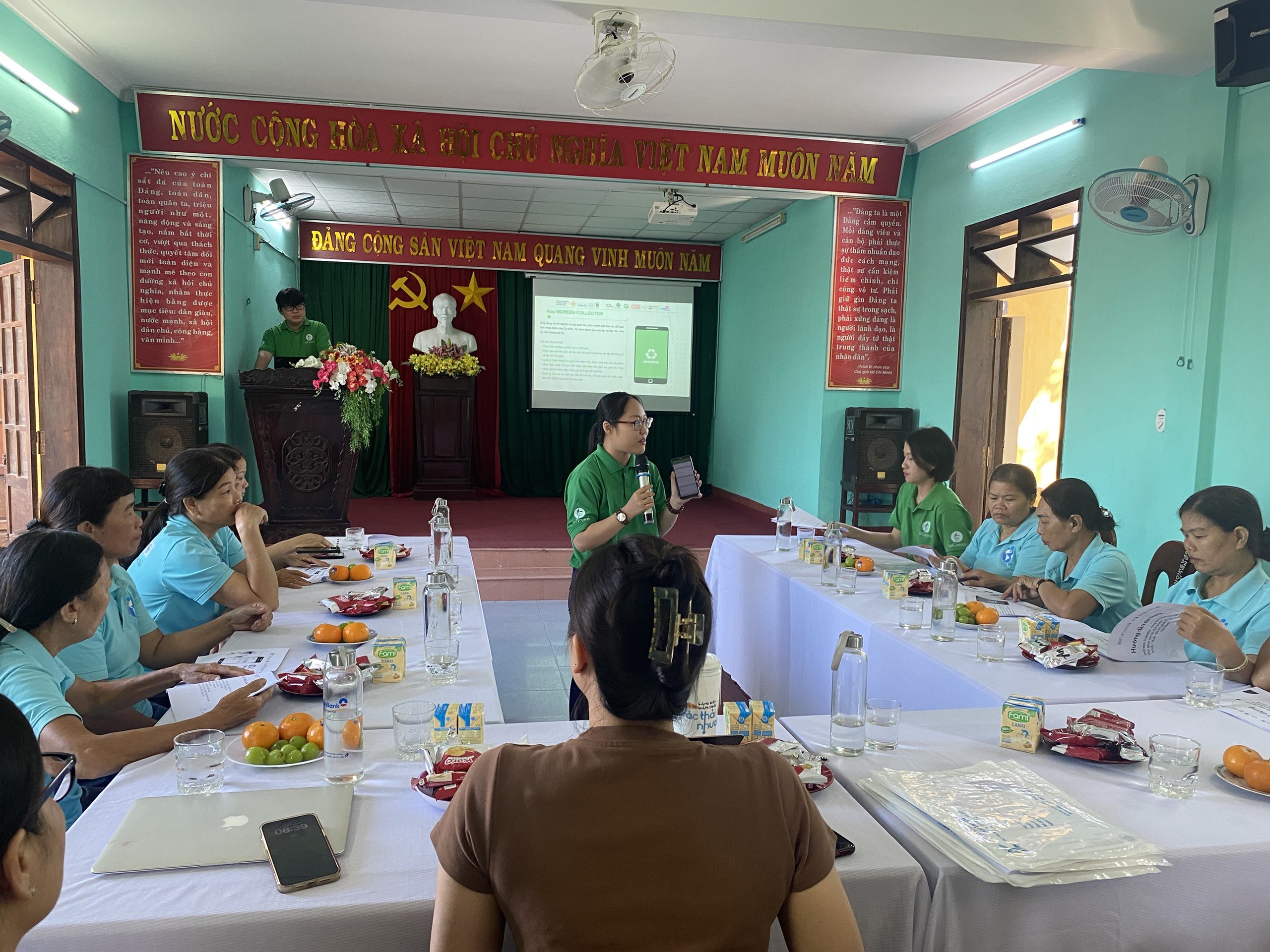Every morning, Aunty Vang rises with the sun, grabs a quick bite to eat, and sets out with her trusty old pushcart along the streets of Hue – Viet Nam’s ancient capital and a rising tourism hotspot.
“Does anyone have bottle caps to sell?” Aunty Vang would call out to the streets of An Dong ward in Hue City, her face always radiant with a smile. At 70 years young, nothing seems to dim the spirit of this petite yet strong woman.


Aunty Vang is the epitome of an informal waste collector (IWC) in Hue City. For over 10 hours a day, be it a scorching day or a drizzly one, Aunty Vang would walk and push her cart around the streets, filling it with recyclables – from old newspapers, to plastic bottles and metal cans.
As the day wears on and the load gets heavier, Aunty Vang would have to take more frequent stops to nurse her aching joints, all while navigating Hue’s increasingly busy road traffic.
Women make up the bulk of informal waste collectors in Hue
Informal waste collectors like Aunty Vang play an indispensable role in Hue’s waste management system and likewise in cities across Vietnam.


According to the baseline study conducted by Hue – a Plastic Smart City in Central Vietnam – recyclable waste is primarily gathered by IWCs. Among them, more than 80% of “junk buyers” are women who are mostly low-income, lack educational qualifications and other livelihood opportunities. Without a steady income, they have no access to capital for starting their own business. Junk buyers collect, sort and sell recyclable materials,
Given such physically demanding and precarious working condition – with long hours spent walking and collecting recyclables along roadsides with heavy and bulky loads – injuries and traffic accidents regularly happen. Yet, the informal nature of the work means that informal waste workers need to personally bear the cost for health insurance (if any) and all medical costs.
Collective Groups for Informal Waste Collectors: Better Livelihoods, Better Waste Management
To support and empower IWCs, Plastic Smart Cities collaborated with the People’s Committee and local Women’s Unions to help set up two collective groups of junk buyers. With a successful pilot in An Dong Ward (Southern Hue), the model was replicated in Huong So Ward (Northen Hue) to establish a second collective group.
The junk buyers collective groups aim to improve livelihood conditions for women who have worked for 5 to 40 years as IWCs, and who rely on this job as a primary source of income. As part of this group, women IWCs can have better access to a larger volume of waste from companies, schools, and other organisations. Under the auspices of the Women’s Union, they also have more opportunities to participate in public events and activities with local authorities to raise awareness and advocate for favourable policies that support IWCs.

A Revolving Capital Fund was also established to provide access to low-interest microloans which can be used for healthcare, education, or improving / repairing equipment and infrastructure needed in the junk buying business. This offers a crucial credit scheme that was previously not easily available to the women. Members of the collective groups also agreed to set aside 20% of the group’s profit to a special internal welfare fund meant to help members in need, such as in sickness or in grief. Regularly, group members will meet with the Women’s Unions and Plastic Smart Cities team to share updates on their business, challenges and develop collective plans for the upcoming months.
Aunty Vang, a proud member of the An Dong collective IWC group’s 11 core members, is overjoyed to witness the birth of another collective group of junk scrap buyers in a second ward. Since then, her income has seen a remarkable improvement, and she’s delighted to see her friends and fellow members of the informal waste collector community growing closer and gaining well-deserved recognition from society.
Digitalising Waste Collection with Mobile Apps
Together with social enterprise MGreen, Plastic Smart Cities is now supporting the development of a mobile application that connects the collective groups of IWCs and junk buyers in Hue City with households looking to sell their recyclables.
In using the app, customers from households are rewarded through a point system which they can exchange for discounts in up to 100 local stores and supermarkets in the city. This partnership seeks to help IWCs and junk buyers reach a wider range of potential customers, with more certainty of available recyclables to be collected, while encouraging households to better separate their waste at source.


